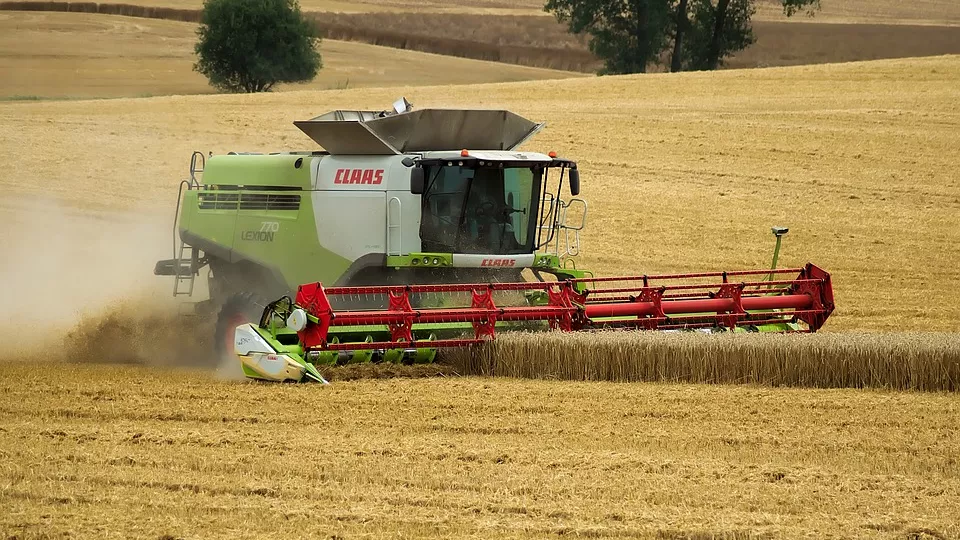This autumn the final negotiations about the proposed post-2020 CAP will take part between the EU Commission, the Council and the newly elected European Parliament. With this in mind, a group of international researchers wanted to examine whether the current reform proposal adequately addresses key sustainability issues and meet societal demands for higher environmental performance.
In their analysis of the proposal, the researchers focus on three questions: Is it compatible with the UN’s Sustainable Development Goals (SDGs), does it reflect public demand for sustainable agriculture, and, does it offer a clear improvement compared to the current CAP?
A clear step backwards
The scientists’ conclusion is “no” – when it comes to environmental protection, the proposed CAP represents a clear step backwards compared with the current policy.
“The CAP objectives are incoherent and unbalanced, and still focus primarily on productivity, farm income and stable markets, at the cost of environmental protection”, says Dagmar Clough, an ecologist who participated in the research during her time at Centre for Environmental and Climate Research (CEC) att Lund University.
The European Union, and thus also Sweden, has made committements within various international agreements to shift toward sustainable agriculture, the protection of biodiversity, and combatting climate change. But the article authors see very little of this intention demonstrated in the current CAP proposal from the European Commission.
“The CAP has the potential to support at least nine of the seventeen SDGs, but currently it only contributes to achieving two of them, the ones regarding hunger and poverty”, says Dagmar Clough.
A powerful tool
Agricultural land covers 174 million hectares, or 40 percent, of the EU's total land area. The international IPBES report that was released this spring identified intensive agriculture as one of the biggest causes of biodiversity loss. In other words – the CAP objectives matters if we want a sustainable future. The article authors point to the CAP – which comprises appproximately 40 percent of the total EU budget – as beeing one of the most important policy areas for implementing international commitments, and a powerful tool to bring about change – if designed and used in the right way.
“Taking the sustainability goals seriously requires a deep reflection on the CAP, developing better instruments, scientific justification and good indicators for assessing the effects of implemented measures”, Dagmar Clough says.
The researchers especially criticize the fact that the EU wants to maintain some of the CAP instruments that have been proven to be inefficient, harmful to the environment and socially unfair. One key example of such an inefficient instrument is the Direct Payments. Around 40 billion euros (roughly 70 percent of the total CAP budget) are paid to farmers on the basis of the farm's cultivated acreage alone. The researchers state that this leads to unequal funding distribution, as 1.8 percent of recipients get 32 percent of the money.
”It should be in the core interest of the EU Commission to use tax payers’ money more efficiently, in order to support societal objectives such as the maintenance of biodiversity or sustainable agriculture in general”, says Dagmar Clough.
The researchers argue that the Rural Development Programme, through which farmers can get support for engaging in sustainable and environmentally friendly farming, offers much better tools to address biodiversity protection and climate change than the Direct Payments. Yet, the Commission suggests to cut the Rural Development Programme by 28 percent in the coming years, posing risks to both the environment and rural societies, according to the researchers.
An unbalanced reform process
The researchers believe that the key reason for the environmental shortfalls lies in an unbalanced reform process, which continually allows powerful lobby organisations far-reaching opportunities to influence the reform and promote their own interests, and exclude other important players from science and society at large.
”If we want a better and more efficient CAP, with environmental protection, we need a different and genuine CAP reform process. The process must be more transparent and the scientific justification has to be much stronger”, Dagmar Clough says.
The article on Science's website:
A greener path for the EU Common Agricultural Policy
Facts:
Researchers from Germany, Portugal, Sweden, France, Austria, Greece and Slovakia have participated in the study. The analysis was based on a comprehensive review of the literature with about 450 publications, addressing issues such as effectiveness, efficiency and relevance of the CAP. The researchers were led by Dr Guy Pe'er, German Centre for Integrative Biodiversity Research (iDiv) and the Helmholtz Centre for Environmental Research (UFZ), and Dr Sebastian Lakner (University of Göttingen).
